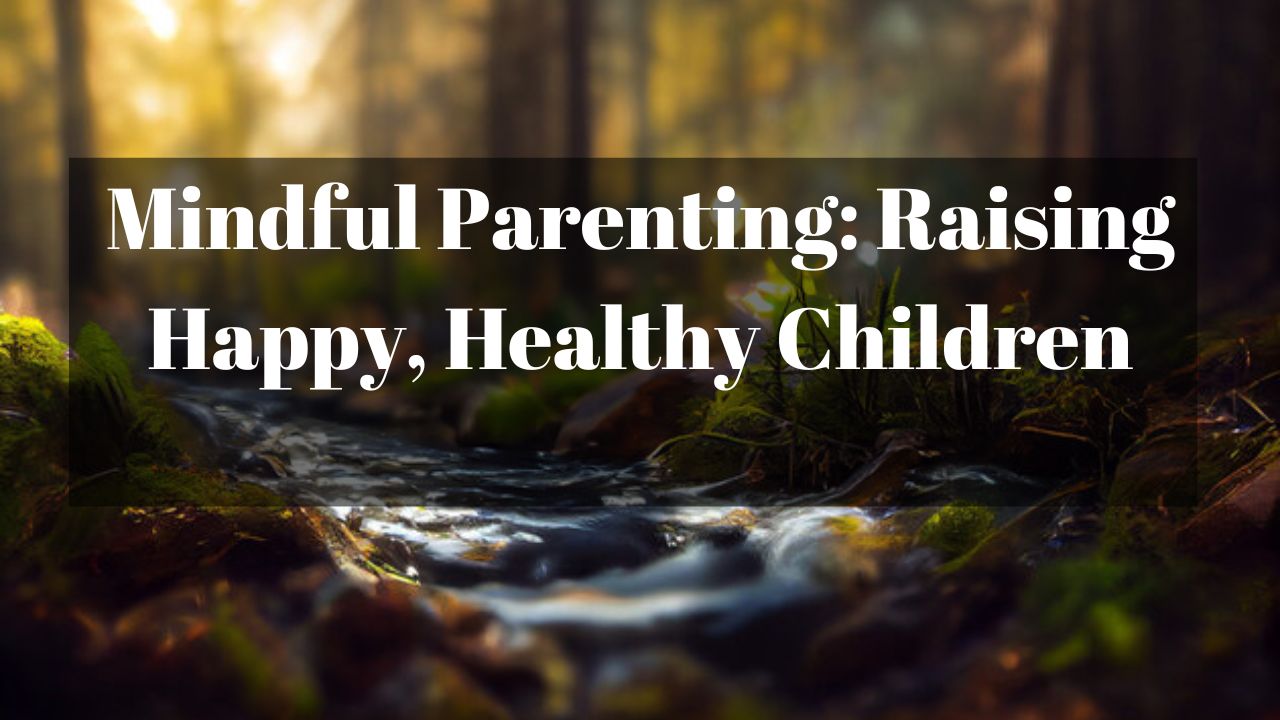Mindful Parenting: Raising Happy, Healthy Children
In the fast-paced and often hectic world of parenting, the concept of mindful parenting has emerged as a transformative approach to raising happy, healthy children. Mindful parenting goes beyond the daily routines of feeding, schooling, and disciplining; it involves being fully present in the moment, cultivating a deeper connection with your child, and fostering emotional well-being. This article explores the principles of mindful parenting, its benefits for both parents and children, and practical strategies for incorporating mindfulness into everyday family life.
-
Understanding Mindful Parenting: Presence and Connection
Mindful parenting is rooted in the practice of mindfulness—a state of non-judgmental awareness of the present moment. Applied to parenting, it involves being fully engaged, emotionally available, and attuned to your child’s needs. Mindful parents strive to cultivate a deep connection with their children by appreciating and savoring the small moments, embracing challenges with equanimity, and fostering a compassionate and supportive environment.
-
Benefits of Mindful Parenting: Nurturing Emotional Well-being
Improved Parent-Child Relationship:
Mindful parenting strengthens the bond between parents and children. By being present and attentive, parents create a secure and supportive environment that fosters open communication and trust.
Enhanced Emotional Regulation:
Mindfulness practices help parents regulate their own emotions, reducing stress and promoting emotional well-being. This emotional stability serves as a positive model for children to develop their own emotional regulation skills.
Increased Empathy and Compassion:
Mindful parents cultivate empathy and compassion, understanding their children’s perspectives and responding with kindness. This creates a nurturing atmosphere that encourages empathy in children as they learn to navigate their emotions.
Improved Focus and Attention:
Mindfulness exercises, such as deep breathing and meditation, enhance parents’ ability to focus and be present. This focused attention positively influences parent-child interactions, promoting quality time and engagement.
III. Practical Strategies for Mindful Parenting: Integrating Mindfulness into Daily Life
Mindful Breathing:
Incorporate mindful breathing exercises into daily routines. Take moments to pause, breathe deeply, and bring awareness to the present. This practice helps parents stay calm and centered, promoting a positive atmosphere at home.
Active Listening:
Practice active listening when communicating with your child. Give them your full attention, make eye contact, and show genuine interest in what they are saying. This fosters a sense of being heard and understood.
Mindful Mealtime:
Turn mealtimes into mindful experiences by savoring each bite and appreciating the flavors. Use this time for family conversations, creating a relaxed and enjoyable atmosphere.
Technology-Free Zones:
Designate specific areas or times in your home as technology-free zones. This allows for uninterrupted, quality time with your child, fostering a deeper connection without distractions.
Embracing Imperfection:
Accept imperfections and let go of the pursuit of perfection in parenting. Mindful parenting acknowledges that mistakes happen, and it’s the learning and growth that matter.
-
Teaching Mindfulness to Children: Building Resilience
Modeling Mindfulness:
Children learn by example. Model mindful behavior by incorporating mindfulness practices into your routine. This could include brief meditation sessions or expressing gratitude together as a family.
Mindful Play:
Encourage mindfulness through play. Engage in activities that require full attention, such as puzzles, art projects, or outdoor exploration. This helps children develop focus and presence.
Emotional Check-Ins:
Teach children to recognize and express their emotions through regular emotional check-ins. This fosters emotional intelligence and communication skills.
Conclusion:
Mindful parenting is a transformative approach that nurtures not only the well-being of children but also the emotional resilience of parents. By incorporating mindfulness into daily family life, parents can create a supportive environment that fosters strong parent-child relationships, emotional regulation, and overall happiness. The journey of mindful parenting is an ongoing practice of presence, compassion, and connection, laying the foundation for a harmonious and emotionally healthy family life.











